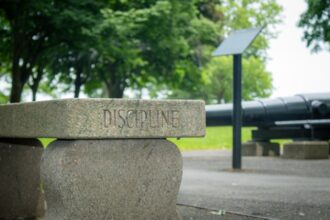Setting clear career goals is the cornerstone of professional success. When you take the time to define what you want to achieve, you create a roadmap that guides your decisions and actions. Think about where you see yourself in five, ten, or even twenty years.
Are you aiming for a leadership position, or do you want to become an expert in a specific field? By articulating your aspirations, you not only clarify your vision but also enhance your motivation. You’ll find that having specific goals helps you stay focused and makes it easier to measure your progress along the way.
Moreover, it’s essential to break down your long-term goals into smaller, manageable milestones. This approach allows you to celebrate small victories, which can be incredibly motivating. For instance, if your ultimate goal is to become a senior manager, consider what steps you need to take to get there.
By setting these incremental goals, you create a sense of achievement that propels you forward, making the journey toward your larger ambitions feel less daunting.
Key Takeaways
- Setting clear career goals is essential for staying focused and motivated in your professional journey.
- Networking and building relationships can open doors to new opportunities and provide valuable support and guidance.
- Seeking mentorship and guidance from experienced professionals can help navigate challenges and accelerate career growth.
- Continuous learning and skill development are crucial for staying relevant and adaptable in a rapidly changing work environment.
- Taking on challenges and risks can lead to personal and professional growth, and help build resilience and confidence.
Networking and Building Relationships
Networking is not just about exchanging business cards; it’s about building meaningful relationships that can support your career growth. You should actively seek opportunities to connect with professionals in your field, whether through industry events, social media platforms like LinkedIn, or local meetups. Engaging in conversations with others can provide valuable insights and open doors to new opportunities.
Remember, every person you meet has a unique perspective and experience that can enrich your understanding of the industry. Building relationships takes time and effort, but the rewards are well worth it. When you cultivate a network of supportive colleagues and mentors, you create a safety net that can help you navigate challenges in your career.
These connections can lead to job referrals, collaborative projects, or even partnerships that enhance your professional journey. Additionally, being part of a community can provide emotional support during tough times, reminding you that you are not alone in your endeavors.
Seeking Mentorship and Guidance

Finding a mentor can be one of the most impactful decisions you make in your career. A mentor is someone who has walked the path you aspire to follow and can offer invaluable advice based on their experiences. When seeking a mentor, look for someone whose career trajectory aligns with your goals and values.
This relationship can provide you with insights that textbooks or online courses simply cannot offer. A mentor can help you navigate complex situations, provide feedback on your work, and even introduce you to other influential people in your field. However, it’s important to approach mentorship with an open mind and a willingness to learn.
Be prepared to ask questions and actively seek feedback from your mentor. This relationship is a two-way street; while they offer guidance, you should also be ready to share your own experiences and insights. By fostering a reciprocal relationship, you not only gain knowledge but also contribute to your mentor’s growth, creating a mutually beneficial partnership.
Continuous Learning and Skill Development
| Metrics | 2019 | 2020 | 2021 |
|---|---|---|---|
| Number of training hours | 500 | 600 | 700 |
| Percentage of employees enrolled in online courses | 60% | 70% | 80% |
| Number of certifications obtained | 50 | 60 | 70 |
In today’s fast-paced world, continuous learning is essential for staying relevant in your career.
Therefore, it’s crucial to adopt a mindset of lifelong learning.
This could involve enrolling in courses, attending workshops, or even pursuing certifications that align with your career goals. By investing in your education, you not only enhance your skill set but also demonstrate your commitment to professional growth. Additionally, consider diversifying your learning sources.
While formal education is valuable, informal learning through podcasts, webinars, or industry blogs can also provide fresh perspectives and insights. Engaging with different mediums allows you to absorb information in various ways, making it easier to retain what you learn. Remember that skill development is not just about acquiring new knowledge; it’s also about applying what you’ve learned in real-world situations.
Seek opportunities to practice your skills through projects or volunteer work, as this hands-on experience will solidify your learning.
Taking on Challenges and Risks
Stepping outside of your comfort zone is where true growth occurs. Taking on challenges and risks can be intimidating, but it’s often necessary for advancing your career. When you embrace new responsibilities or tackle difficult projects, you not only expand your skill set but also demonstrate your willingness to take initiative.
This proactive approach can set you apart from your peers and position you as a valuable asset within your organization. However, it’s important to assess risks carefully before diving in headfirst. Weigh the potential benefits against the possible downsides and consider how each decision aligns with your career goals.
While some risks may lead to significant rewards, others may not yield the desired outcomes. By approaching challenges thoughtfully and strategically, you can make informed decisions that propel your career forward while minimizing potential setbacks.
Embracing Failure and Learning from Mistakes

Failure is often viewed as a negative experience, but it can be one of the most powerful teachers in your career journey. When things don’t go as planned, it’s essential to reflect on what went wrong and identify lessons learned. Embracing failure allows you to develop resilience and adaptability—qualities that are invaluable in any professional setting.
Instead of fearing mistakes, view them as opportunities for growth and self-improvement. Moreover, sharing your experiences with failure can foster a culture of openness within your workplace or network. When others see that setbacks are a natural part of the journey, they may feel more comfortable taking risks themselves.
By discussing what went wrong and how you overcame challenges, you not only reinforce your own learning but also inspire those around you to embrace their own journeys with courage and determination.
Building a Strong Personal Brand
In today’s competitive job market, having a strong personal brand is essential for standing out from the crowd. Your personal brand encompasses how you present yourself professionally—your skills, values, and unique qualities that differentiate you from others in your field. Start by identifying what makes you unique and how you want to be perceived by others.
This could involve refining your online presence through social media profiles or personal websites that showcase your expertise and accomplishments. Consistency is key when building a personal brand. Ensure that your messaging aligns across all platforms—whether it’s LinkedIn, Twitter, or even in-person interactions.
By presenting a cohesive image of who you are and what you stand for, you create a lasting impression on potential employers or collaborators. Additionally, don’t hesitate to share your knowledge through thought leadership content such as articles or presentations; this not only reinforces your expertise but also positions you as an authority in your field.
Leveraging Technology and Innovation
Technology plays an increasingly vital role in shaping careers across various industries. To stay competitive, it’s essential to leverage technology effectively in your professional life. Familiarize yourself with tools and software relevant to your field—whether it’s project management platforms, data analysis tools, or communication apps.
By embracing innovation, you can streamline processes and enhance productivity in your work. Furthermore, staying informed about emerging trends in technology can give you a significant advantage over others in your industry. Attend conferences or webinars focused on technological advancements relevant to your field; this knowledge will not only keep you ahead of the curve but also position you as someone who is adaptable and forward-thinking.
Embracing technology isn’t just about using tools; it’s about understanding how they can transform the way we work and interact within our professional environments.
Balancing Work and Life
Achieving a healthy work-life balance is crucial for long-term success and well-being. While dedication to your career is important, neglecting personal time can lead to burnout and decreased productivity over time. It’s essential to set boundaries between work and personal life—this might mean designating specific hours for work tasks or ensuring that weekends are reserved for relaxation and family time.
Additionally, prioritize self-care activities that recharge you outside of work—whether it’s exercising, pursuing hobbies, or spending time with loved ones. By nurturing both aspects of your life, you’ll find that you’re more focused and energized when it comes time to tackle professional challenges. Remember that balance doesn’t mean equal time; it means allocating time according to what matters most at any given moment.
Seeking Feedback and Self-Reflection
Feedback is an invaluable tool for personal and professional growth. Actively seeking input from colleagues or supervisors allows you to gain different perspectives on your performance and areas for improvement. Don’t shy away from constructive criticism; instead, view it as an opportunity to refine your skills and enhance your contributions within the workplace.
Self-reflection is equally important in this process. Take time regularly to assess your strengths and weaknesses honestly. Consider keeping a journal where you document achievements as well as challenges faced throughout the week; this practice will help clarify patterns over time while providing insight into areas needing attention or development.
Giving Back and Mentoring Others
As you progress in your career journey, consider the importance of giving back by mentoring others who are just starting out or facing challenges similar to those you’ve encountered along the way. Sharing knowledge not only helps others grow but also reinforces what you’ve learned throughout your own experiences. Mentoring can take many forms—whether it’s offering guidance through formal programs or simply being available for casual conversations with colleagues seeking advice on their paths forward.
By investing time into helping others succeed, you’ll find fulfillment while strengthening connections within your professional community. In conclusion, navigating a successful career requires intentionality across various dimensions—from setting clear goals to embracing failure as part of the journey. By focusing on building relationships through networking while continuously developing skills relevant to evolving industries; taking calculated risks; maintaining balance between work-life commitments; seeking feedback regularly; cultivating strong personal brands; leveraging technology effectively; giving back through mentorship—you’ll position yourself for sustained success throughout every stage of your professional life.
Achieving career success quickly often involves a combination of strategic planning, skill development, and effective networking. One insightful resource that delves into these strategies is an article on Productive Patty’s website. This article provides practical tips and actionable steps to accelerate your career growth. For more detailed guidance, you can read the full article by visiting Productive Patty. This resource is particularly useful for those looking to fast-track their professional journey by leveraging productivity techniques and personal branding.
WATCH NOW! Nietzsche: Destroy Your Laziness Before It Destroys Your Career
FAQs
What is career success?
Career success can be defined as the achievement of desired outcomes in one’s professional life, such as reaching career goals, gaining recognition, and experiencing personal fulfillment and satisfaction in one’s work.
How can I achieve career success fast?
Achieving career success fast requires a combination of factors such as setting clear goals, developing a strong work ethic, continuous learning and skill development, networking, seeking mentorship, and being adaptable to change.
What are some strategies for achieving career success fast?
Some strategies for achieving career success fast include setting specific and achievable goals, seeking out opportunities for growth and advancement, building a strong professional network, taking on new challenges, and being proactive in seeking out mentorship and guidance.
Is it possible to achieve career success quickly?
While achieving career success fast is possible, it often requires a high level of dedication, hard work, and strategic planning. It is important to set realistic expectations and be prepared to put in the effort required to achieve career success in a shorter timeframe.
What are some common obstacles to achieving career success fast?
Common obstacles to achieving career success fast may include lack of experience, limited opportunities for advancement, competition in the job market, and personal or professional setbacks. Overcoming these obstacles may require resilience, perseverance, and a willingness to adapt and learn from challenges.




